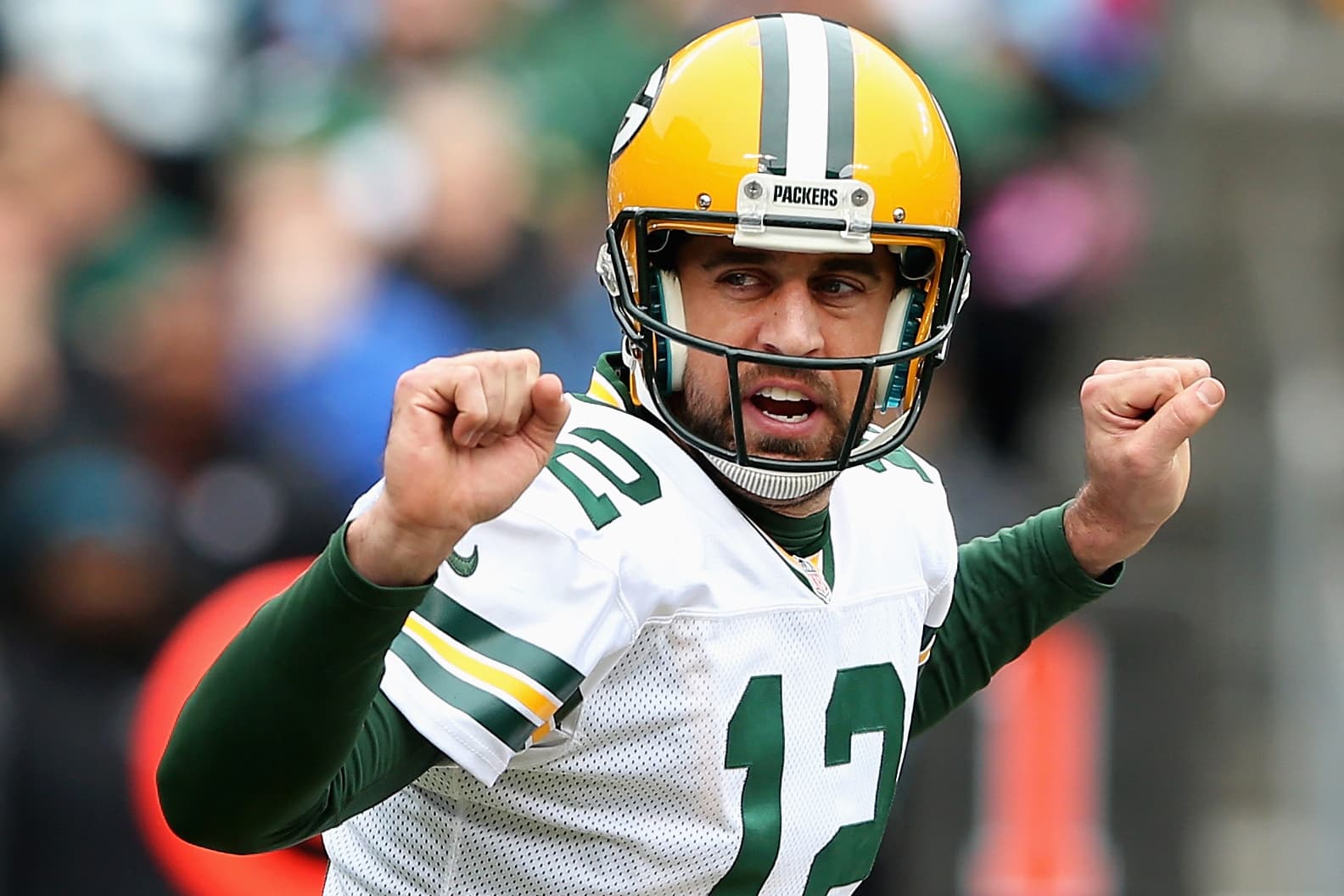
Aaron Rodgers, Green Bay Packers
Getty Images
Green Bay Packers star Aaron Rodgers joined top stars from around the National Football League who used social media to explain their displeasure with the proposed collective bargaining agreement from team owners, with some players already turning down the offer.
Rodgers, 36, voted no to the NFL owners’ proposal claiming he’s only seen “an abbreviated version” of the deal which he feels “isn’t good enough.” Team owners approved “principal elements” of a new CBA last week, which included pay raises and the much demanded 17-game schedule, which could start as early as the 2021 season should a new deal be approved.
Rodgers, who is one of 32 NFL players union representatives, said he based his decision off conversations he’s had “with the men in my locker room,” and added that a change to regular-season and postseason games should have never been negotiated.
“The owners made it clear that the 17th game is about paying for the ‘added’ benefits, and had nothing to do with the positive feedback received about any extra risks involved with the added regular season game,” Rodgers tweeted. “There were also many issues raised about the workplace, the workload and offseason program. Some have been addressed, while others have not.”
The NFL players union executive committee initially voted 6-5 not to recommend the proposal for a final vote in which all players participate. According to two people with knowledge of negotiations, one of the holdups included players continuing to question the financial structure of a 17th game.
Heading into Tuesday’s meeting with NFL owners, the proposal suggested players could receive up to $250,000 for the extra contest, but owners dropped the game’s salary maximum after more than four hours of talks in Indianapolis, the site if the NFL Combine. The union then decided to move the proposal to a final vote after additional discussions.
Players are now deciding whether or not to approve the proposal. If approved and ratified, labor peace is established for the next decade. But if players reject the deal, negotiations could be suspended until next offseason.
If both parties fail to ratify a new CBA before next March, owners could decide to lock out players for the first time since 2011. That lockout lasted four months but did not result in the loss of regular-season games.
In a statement released last week, the NFL acknowledged owners approved the proposal, adding they would also exercise the “final year of the 2011 CBA if the players decide not to approve the negotiated terms. Out of respect for the process and our partners at the NFLPA, we will have no further comment at this time.”
Terms of the proposed CBA were revealed last week, which states players would receive 47% of league revenue for the 2020 season, which the Wall Street Journal reported amounted to roughly $16 billion over the last year. For the 2021 season, the share will increase to 48%. The next kicker will occur if a 17th game is added, which would then put the players’ share at 48.5% — increasing the projected payout to $5 billion to players throughout the 10-year deal.
Other additions to the owners’ proposal include the ability to add 14 players to practice squads, up from 12, with an increase in pay – $10,500 per week, up from $8,000 in the 2019 season. If the two sides didn’t agree on a new CBA by next month, the 2020 pay for practice squad players would have totaled $8,400 according to the current CBA established by the NFL and the players association in 2011.
Also, testing for THC will be limited, and players who do test positive for THC can still be penalized but will avoid game suspensions.
On Wednesday, players, including Seattle Seahawks quarterback Russell Wilson warned that players should not “rush” their decision before revealing he voted “no” to the new proposal.
Following a Week 9 win over the Chicago Bears last season, Philadelphia Eagles safety Malcolm Jenkins told CNBC the union recognizes “how big this moment is for the future of our game.” Jenkins said players would not be hurried into taking any deal they consider unfair.
“We recognize how much money is being made off of our sport, off our likeness, off the product we’re putting on the field,” Jenkins said. “When it comes to the business of the sport, especially football, it should be a partnership between the NFL and its players. Not the ownership-player dynamic that it has been.
“Any move we make contractually affects the whole group,” Jenkins added. “If I take a bad deal, that trickles down to everybody who is behind me and vice versa. And so, we’re not in the business of doing anything that is a bad deal, doesn’t lookout for the next guy or doesn’t set the bar a little higher.”


